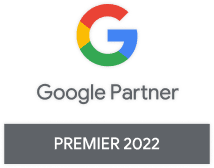Understanding your Digital Marketing Strategy: A guide to planning like a pro
In the world of contemporary marketing strategy, we increasingly need to think digital. With the rise of social media platforms, search engines, email marketing, mobile marketing and other online channels and digital platforms, businesses and their digital marketing team really need to be able to create an effective digital marketing strategy that stands out from the rest.
That’s easier said than done. A strong digital marketing strategy requires extensive planning and an in-depth knowledge of effective digital marketing tactics and strategies to engage existing and new customers. The world of marketing online is ever evolving, and digital marketers today might find themselves a step behind those of tomorrow if they don’t keep up to date with strategies that have proven success.
The importance of digital marketing?
Marketing professionals have been spending ever more money to boost engagement online and reducing traditional marketing spending. This is because potential customers are increasingly reached online, and customer relationships now need to be fostered via mobile devices, not the newspaper.
If we also consider that gen Z, the most digital generation yet, makes up 35% of the population and roughly 65% of all consumption, then the importance of perfecting social media posts and optimising search engine results becomes very clear.
What is digital marketing strategy planning?
Digital marketing aims to establish an online presence via digital media and platforms. Digital Marketing is primarily designed for increasing awareness of your business in front of new and existing customers in the digital world.
Digital marketing strategy planning assists businesses to achieve specific targets through a carefully crafted plan. So, how do you create a digital marketing strategy plan that will smash your business goals? Well, you’ll first need to carefully consider aspects of a digital marketing strategy framework.
What is a digital marketing strategy framework?
A digital marketing strategy framework defines the aspects of your strategy to consider before launching digital marketing campaigns. It includes exploring items such as your paid and owned media, establishing the measurement measures of progress and successes, and completing a comprehensive assessment of skills, tools and techniques needed for the success of your digital marketing efforts.
There are many elements of a digital marketing strategy framework. We’re going to cover those most considered by marketing leaders and their marketing teams. These are key considerations in developing a digital marketing plan and selecting marketing strategies.
-
Identify your goals before digital marketing strategies
All marketing goals must always reflect your business objective. If an online marketing campaign is aimed at generating 50% more leads than in the last year, it could underpin a business objective of growth.
If your business objective is more personalized communications to build customer loyalty, than your marketing goals might be along the lines of 10% increased engagement with social media platforms. No point increasing lead generation if your business goals aren’t along the lines of customer acquisition. Catch our drift?
Once you have your digital marketing goals down pat, you can then explore the suitable marketing channels of your digital marketing campaign.
-
Strategy vs tactic
Strategy outlines your path to a destination – with realistic and specific goals along the way to help your business reach its objectives. Tactics are concrete and definite steps in your strategy to achieve these goals and reach your destination. You need to outline your strategy before you go looking at specific marketing tactics.
Perhaps your strategy involves the goal of understanding customers on new digital marketing channels, and your tactic would then be to create buyer personas that help you step into their shoes. This buyer persona helping you understand customers could then help generate leads through targeted paid advertising. It’s all a flow on effect. Carefully develop a strategy, and then explore tactics.
Tactics you might consider include:
Digital advertising

Digital ad placement includes ad campaigns on marketing platforms such as television, radio, websites, or social media. Digital advertisements reach audiences through effective consideration of timing, context, content and tone across all relevant marketing platforms.
Social media marketing
The term social media marketing means creating and marketing a piece of content that has primarily been associated with developing and nurturing communities online. This can include social media ads, influencer marketing and social media events. It’s important that digital marketing leaders don’t see social media as only a medium to raise awareness. Instead, it is a tool to foster connection, community and commitment to your brand.
SEO
Search engine optimization (SEO) refers to methods that help increase qualified website visitor traffic and enhance the relevance of a site’s content and experiences. An integrated digital marketing strategy must take into account both paid and organic SEO. In comes the job title of ‘copywriter’, the professionals who carefully boost your brand SEO while providing relevant information to a target audience.
Paid media
Paid media refers to the media you invest in to attract buyers. These include Google ads and influencer marketing, to sponsored content. Say you’ve got a landing page itching for visitors. To gain traffic, you might want to speed things up a little with paid media until your organic traffic from earned media picks up.
-
Create a content creation plan

Make a content creation plan to identify and automate the content needed in your content marketing. This can be an easy spreadsheet and must contain budget if you plan on building marketing automation by outsourcing the production of your content marketing to others through digital channels.
-
Audit and plan your media campaigns
This procedure follows the process of evaluating paid content from every platform (e.g. Google AdWords, Facebook, Twitter) to determine what will best assist you in meeting your current objectives. If your AdWord campaign doesn’t yield any of the results you wanted it may need re-evaluating or scrapping altogether to get more results.
On the other hand, your PPC ads could be showing massive return and be something you stick with or increase use of. When it comes to paid ads, simply ask yourself, are you sure you’re not just burning money? Always audit as well as plan.
Bring your digital marketing campaigns together
You’ve identified your goals, developed an overall strategy and your tactics, created a content creation plan, and decided how you’ll audit the effectiveness of your digital media campaigns. You’re now well on your way to an effective overall marketing strategy. Bring it all together and you’re in business!
What are the benefits of digital marketing?
Digital Marketing offers a variety of benefits, but most importantly, a contemporary digital marketing strategy allows you to connect with a contemporary audience. That typically means younger individuals who are more likely to spend rather than save. Give these aspects of a digital marketing framework the time of day and you’ll be well on your way to implementing an effective digital marketing strategy in no time.

















